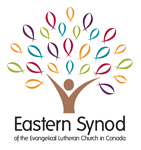I walked through hell and into heaven. Literally.
I visited the UNESCO World Heritage site in Lalibela, Ethiopia, in December of 2021.
Eleven rock-hewn monolithic churches, architecture and engineering wonders were built some 1000 years ago by King Lalibela. Tradition says that King Lalibela dreamed of the churches, as a New Jerusalem for the Coptic community. The churches are brilliantly engineered and connected through tunnels, and trenches, when the rains come the baptismal fonts, all filled with water. These churches are still home to vibrant Ethiopian chuches.
My host wanted me to experience an ancient practice of walking from hell to heaven, by entering a tunnel between two churches. With bare feet and a bit of trepidation we entered the rock tunnel. My host had instructed me to have one hand above my head guiding the ceiling and one hand out to the side to feel the walls.
It was PITCH black. There was no adjustment to the dark so you could see. It was completely dark and that was disorienting. I was grateful for my guiding hand placement and feeling the cool rock on my feet as I placed each foot forward.
I may have said something like….”yikes”….”I don’t like this” “how far?” I heard my host who had swiftly moved ahead said, “one step at a time, just take one step at a time” . And she faded into the distance.
One step, feeling my way trying to reorient when everything seemed off.
I walked in complete darkness, there was no light at the end of the tunnel.
I heard others enter the tunnel behind me, equally disoriented and uncomfortable. I offered, “one step at a time, just take one step at a time.”
It was quiet, I think in darkness we try to hear better. One step. One step.
Finally after what seemed like forever, we turned a corner and a small bit of light could be seen….the light grew and I came to a rickety ladder leading out of the tunnel. There was sunlight.
Up I went, feeling the warmth of the sun as I went. I was grateful for the many hands that reached out to help me off the ladder and out of the hole. I was enthusiastically welcomed into heaven, by many who had also just experienced this trek through hell.
We have all experienced situations where we feel like we have gone down a dark hole, and felt isolation and disorientation.
Cancer diagnosis, relationship strain, addictions, work stress, loneliness, death of a loved one, fear of coming out, anxiety about the future.
In these situations, the community’s words, “one step at a time, just take one step at a time” become life-giving. We are reminded that we do not walk alone but have a God who journeys with us every step of the way. A God who is never the author of the challenges we face, but one that walks alongside us without judgement.
Our church communities are important to reach out and help us. To welcome us in.
The goalposts of our ELCIC church have shifted significantly in the last year. New leadership in many areas and we look forward to welcoming a new National Bishop in July.
It can be disorienting, but together, as God’s church we walk…….. one step at a time.
The goalposts of the world have also shifted significantly in the past months. It feels disorienting. We as Canadians find ourselves in new realities. We are called upon now more than ever to be the church, to reach out to all, especially those who do not look like us, talk like us, dress like us, or love like us.
We have been asked to have our elbows up to support Canada, shop Canadian and vacation in Canada. I would love to see those elbows up but linked with our multicultural neighbors, our queer family, Indigenous first people, and Mother earth. Together we step forward into our new reality.
One step at a time, making sure no one is left behind, no one falls. One step.
